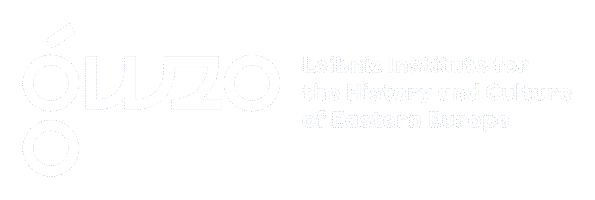Subproject 3: Urban Spatial Transformations
Subproject 3 focuses on residential areas in the Baltics, the Caucasus, and Ukraine, examining how migration, housing demand, and climate adaptation influence urban resilience in Soviet-era neighborhoods. Building on the first phase's analysis of 19th- and 20th-century housing transformations, this phase examines key risks and opportunities for sustainable development.
Key Questions:
- How have post-Soviet transformations like densification, demolition, and privatization affected the resilience of these neighborhoods?
- Do these changes strengthen urban robustness or create new vulnerabilities?
- What measures are needed for adaptive and sustainable urban growth?
The subproject aims to advance understanding of resilience in post-Soviet housing, equip experts and researchers with actionable insights, and collaborate with academic and practical partners to propose concrete solutions. Findings will be shared widely through exhibitions, teaching programs, lectures, and podcasts, making the research accessible and impactful.
Lead: Prof. Barbara Engel (urban development and planning, Karlsruhe Institute of Technology), together with Dr. Anastasia Malko, Ekaterina Gladkova M.A. and Marina Sapunova M.A. (all Karlsruhe Institute of Technology).
Detailed Information
The research project focuses on understanding architectural, functional, and social transformations in selected residential neighborhoods of the 20th century in Georgia, Estonia, and Ukraine. The goal is to analyze patterns of urban change, assess strategies for sustainable development, and evaluate approaches to resilience in post-Soviet housing. The findings aim to provide transferable insights for cities facing similar challenges, bridging gaps between academic research, urban planning, and public engagement.
The first phase involves baseline assessments and preparatory work for the urban analyses. International literature and best practices will be reviewed to identify relevant approaches for analyzing housing transformations. Analytical matrices will be developed to structure field research, and the research design will be refined through discussions with the Research Network.
The core phase focuses on urban-spatial, functional, and social transformations in selected neighborhoods of Odesa (Ukraine), Tbilisi (Georgia), and Tallinn (Estonia). These neighborhoods will be documented through photography, drawings, and written analyses, emphasizing processes such as densification, reconstruction, repurposing, and climate adaptation.
Interviews and focus group discussions will be conducted with stakeholders, including city officials, NGOs, residents, local architects, and business owners. Interim findings will be presented at expert workshops in each city, fostering dialogue with professionals from academia, government, private businesses, and civil society to align insights with current social and legal frameworks.
Collaborating with university partners, this phase incorporates findings from the urban analyses into scenario development. Through international research seminars and design studios, sustainable development strategies will be proposed. These scenarios will form the foundation for a practical pilot study.
The final phase includes a verbal and graphic evaluation of findings, concluding with the publication of results in academic journals and a book. A traveling exhibition and podcast will present the insights to a wider audience, ensuring broad dissemination among urban planners, policymakers, and the public.
Bios
Senior Researcher at the Karlsruhe Institute of Technology (KIT) in Germany, architect, urban planner, specialist in the protection of architectural historical and cultural heritage. Dr.-Ing. Malko holds a PhD in Engineering in the Technical University of Dresden (Germany), specializing in the preservation of the historical and cultural heritage and urban development of the city. Work experience includes research abroad in urban planning workshops in Cergy-Pontoise (Les Ateliers Internationaux de Maîtrise d'Oeuvre Urbaine de Cergy-Pontoise, France) and Ecole de Chaillot - an architectural school for the preservation of historical monuments (Paris, France). Dr.-Ing. Malko's research interests and design activities are focused on the search for principles and concepts for the preservation and development of the historical architectural and urban planning environment, including the era of Soviet modernism, taking into account successful foreign experience. One of the main aspects is the importance of urban space and urban structures in the development of the city and the identification of the city and its history with its inhabitants.
Contact:
Marina Sapunova is a research assistant and PhD candidate at the Karlsruhe Institute of Technology (KIT), Chair for International Urban Planning and Design. She holds a Master’s Degree in Urban Spatial Development and has extensive experience in analytical and team-leading roles within urban and strategic planning projects, concept development, and fieldwork. Her professional background includes working on large-scale urban projects and collaborating with cross-disciplinary teams, as well as contributing to teaching urban planning courses and developing curricula. Her research focuses on post-socialist spatial transformations, with particular attention to property governance, housing policy, zoning legislation, and land-use regulation. Marina is the co-founder and screenwriter of MÊTRE, an investigative documentary project exploring housing and urban regeneration.
Contact:
PhD student Ekaterina Gladkova is a researcher at the Karlsruhe Institute of Technology (KIT) in Germany. She holds a bachelor’s degree in architecture and a master’s degree in urban planning, including periods of study and research abroad at the Karlsruhe Institute of Technology (KIT). Ekaterina is a practicing urban planner. Her research interests and project activities focus on methods, concepts, and approaches to the renovation of residential neighborhoods of the 60s and 70s, including the interaction of public spaces, landscape, and residential groups, as well as scenarios for the renovation of open spaces in these neighborhoods.
Contact:









